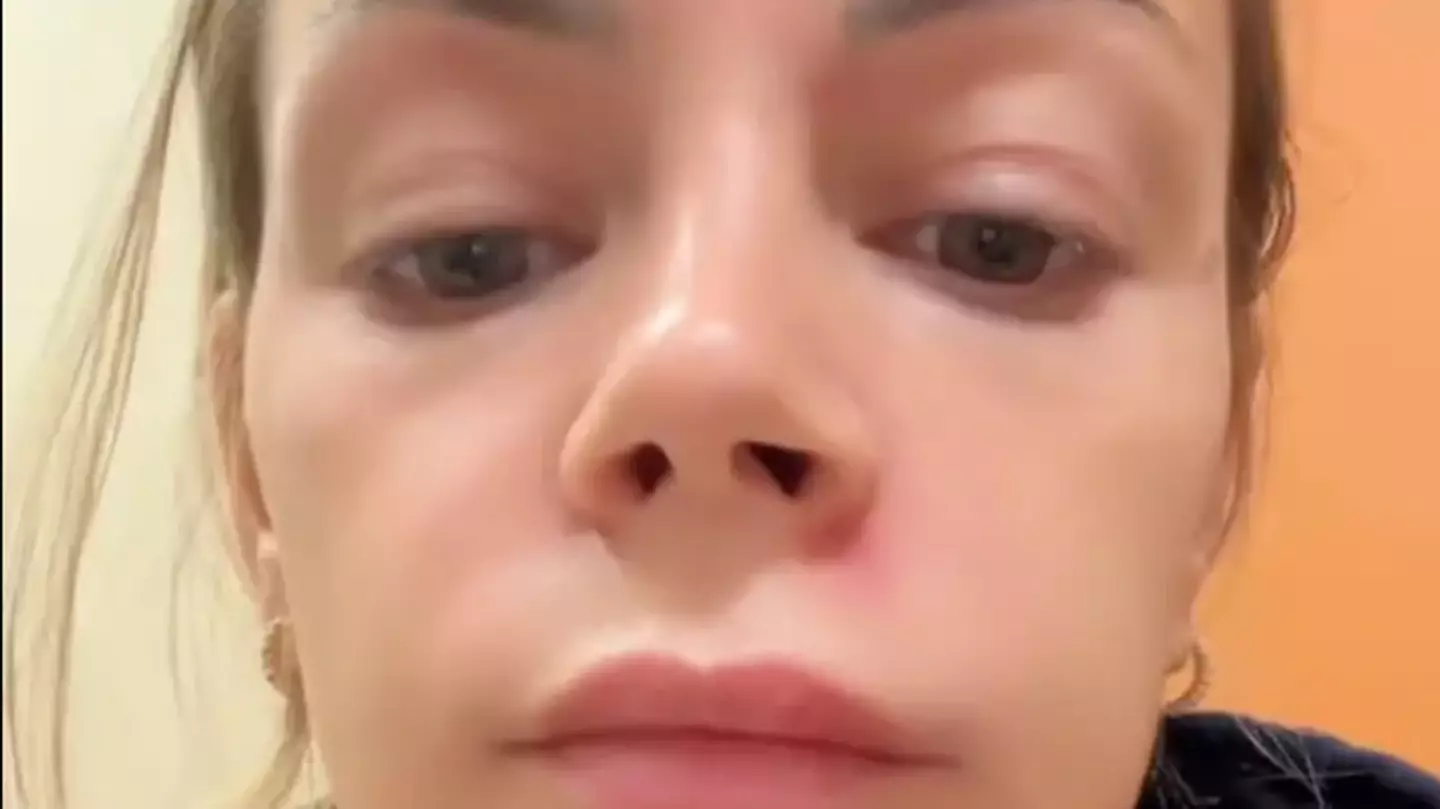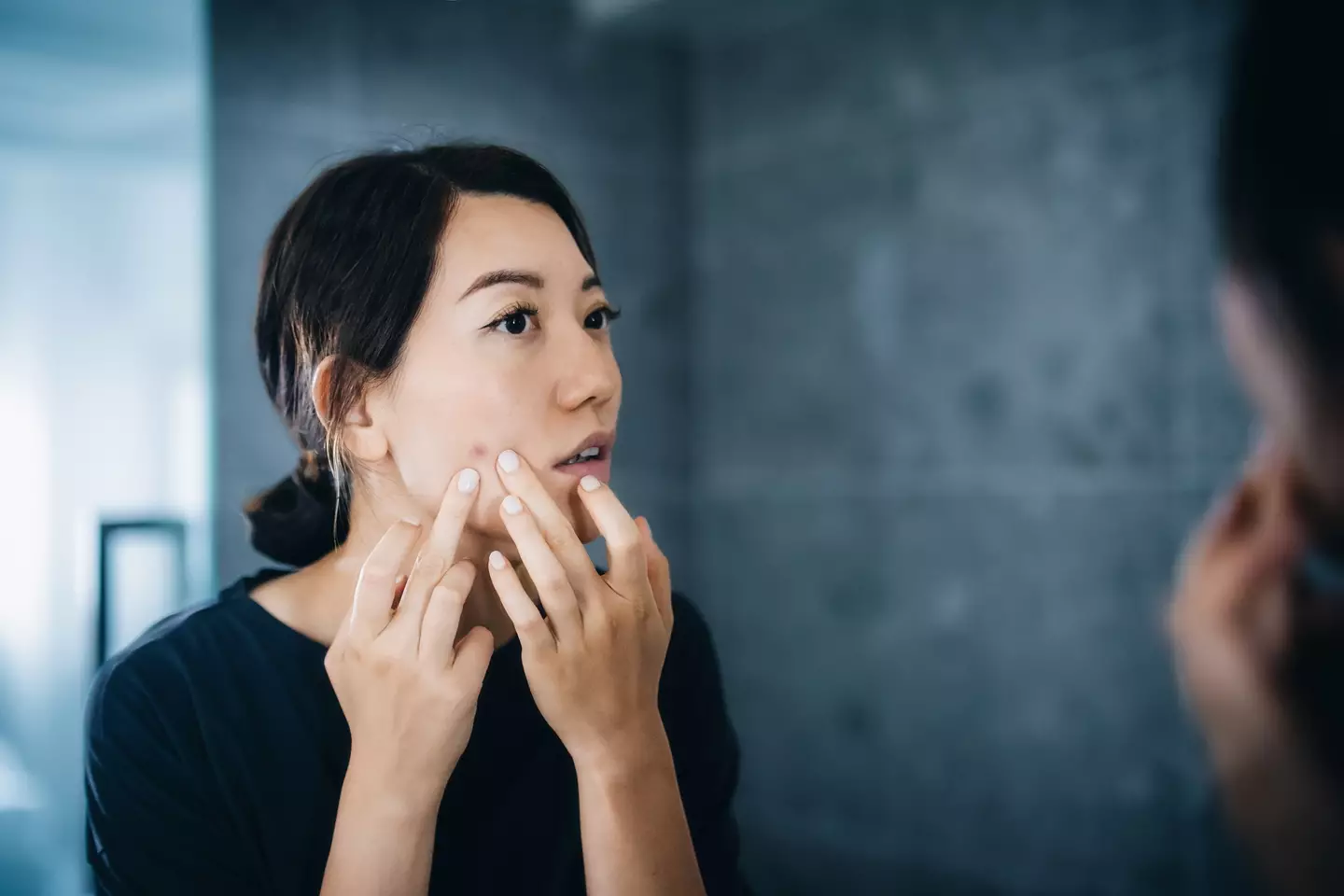
A woman who popped a spot in the ‘triangle of death’ area on her face has issued an urgent warning after the innocent act sent her to hospital.
Lish Marie was put on four different medications shortly after she popped a common cystic pimple on her face.
Over on her TikTok page (@lishmarie1), the mum-of-three revealed that she quickly started to develop a number of intense symptoms.
Within four hours, Lish's face had swollen dramatically on one side, and when she tried to smile, only the opposite side of her face would move.
Advert
Doctors put her on antibiotics and steroids, warning that this facial zone - known as the ‘triangle of death’ or the 'danger triangle' amongst dermatologists - is riskier than many people realise.
What is the ‘triangle of death’?

So, the 'danger triangle' pretty much spans from the bridge of the nose down to the corners of the mouth.
"Think of this small segment of your face as a direct line to your brain," the Cleveland Clinic explains. "That’s thanks to your cavernous sinus, a network of large veins located behind your eye sockets.
"Through this sinus, blood drains from your brain.
"An infection in the danger triangle — like from a picked pimple, or a nose piercing gone wrong — has a small but not impossible chance of traveling from your face right to your brain, without much distance to cover between them."

Dermatologist Alok Vij said it's possible for a facial infection to actually develop into an 'infection that impacts the rest of your body'.
"Whenever there’s a violation of the skin and interaction with bacteria, there’s always a possibility for infection, which can lead to greater health concerns," Dr Vij added.
While you're probably not going to die from popping a zit on your nose, technically speaking, it's possible.
"Honestly, you should always avoid popping pimples. Doing so can lead to inflammation, post-inflammatory hyperpigmentation and scarring — and, of course, infection."
When to see a doctor
If you start to develop a facial infection, the American Medical Centre recommends watching it carefully and noting any changes in your overall health, particularly within the first five to ten days.
This is because early signs of a worsening infection may require medical attention.
"The infection may start to get bigger, spreading to cover more of an area, and you may start to feel more systemically ill — a fever, shaking, chills. If this starts to happen, see a doctor as soon as you can for diagnosis and treatment," Dr Vij said.